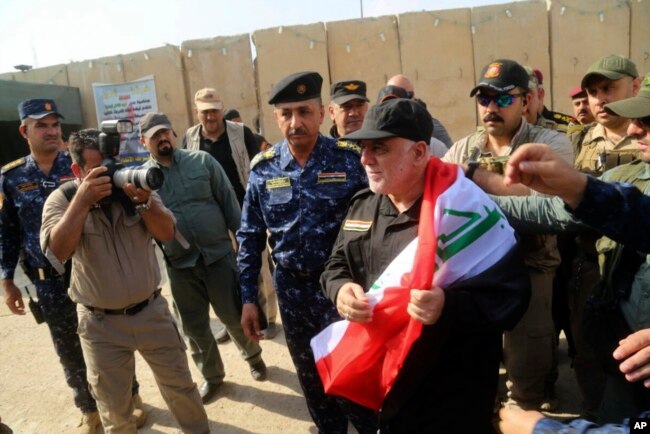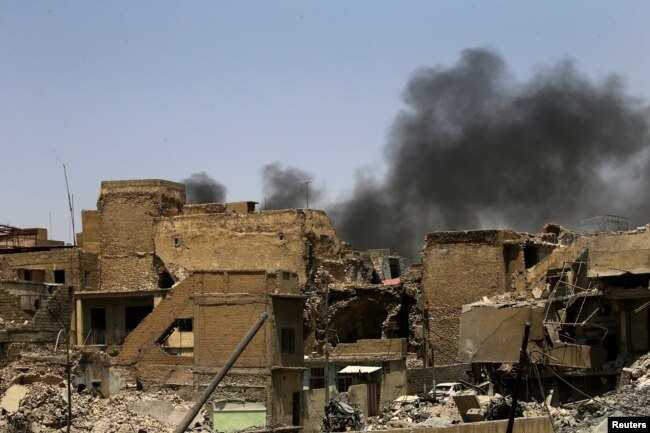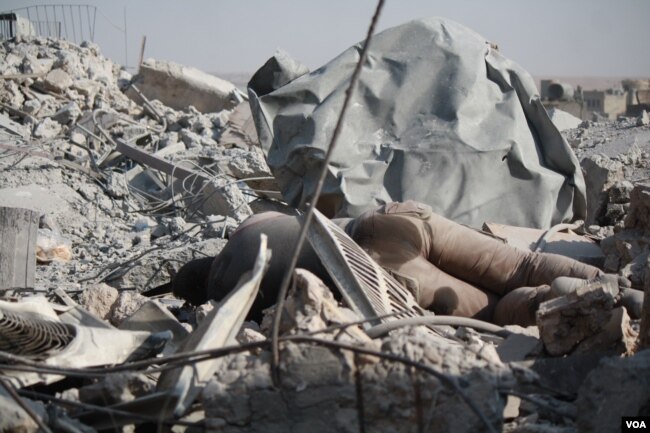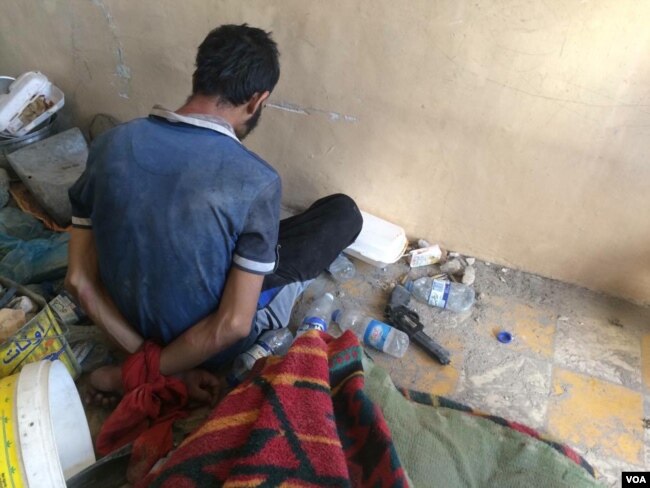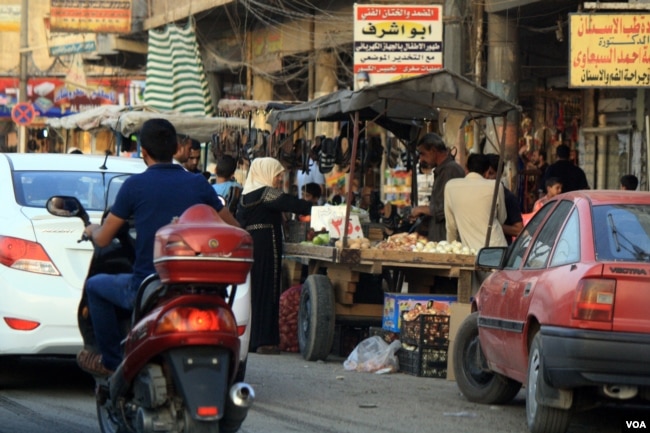
MOSUL, IRAQ — Iraqi Prime Minister Haider al-Abadi has formally declared victory over Islamic State in Mosul.
Speaking from Mosul’s Old City in a speech carried on state television, Abadi said the win is a victory over oppression, brutality and terrorism. “I declare in Mosul, from Mosul, to all people, the stop and failure and collapse of the terrorist Islamic State,” he said.
Abadi said following the success in Mosul, the country still faces challenges, including destroying Islamic State terrorism cells that still exist in the country and creating stability for the entire nation.
The U.S. military welcomed Abadi’s announcement and congratulated the Iraqi Security Forces (ISF). “While there are still areas of the Old City of Mosul that must be back-cleared of explosive devices and possible ISIS fighters in hiding, the ISF have Mosul now firmly under their control,” said a U.S. military statement.
Hours before Abadi’s speech, witnesses reported heavy fighting still underway in parts of Mosul.
The commanding U.S. general of the coalition operation in Mosul, Lieutenant General Stephen Townsend, said “This victory alone does not eliminate ISIS and there is still a tough fight ahead. But the loss of one of its twin capitals and a jewel of their so-called caliphate is a decisive blow.”
The fall of Mosul marks the end of much of the Islamic State caliphate in Iraq. The group still controls some territory outside Mosul as well as territory in neighboring Syria.
Fighting to the death
Iraqi soldiers described the final fights in Mosul as the most brutal in the battle with Islamic State militants, as they entered houses where militants hid out in suicide vests.
While the vast majority of Mosul is now controlled by Iraqi forces, soldiers estimate there are between 100 and 150 IS members still fighting in Mosul, and say the focus is on taking as many of the remaining militants alive as possible.
Iraqi soldiers say the remaining fighters are zealots; most are not Iraqis, and for them every battle is fought to the death.
“They shouted at us, Get out of this Muslim land, infidels!” Barak Razaq, an Iraqi special forces soldier, said on the frontlines Sunday. “Then we saw them wearing suicide vests. We threw grenades at them and retreated and then called for an airstrike.”
Fighters pretend to be refugees
In a nearby house used as a makeshift base, three men sit against a wall with their hands tied behind their backs. They are rail-thin, and one man looks like he urinated on himself. Another appears to be silently praying.
“These are Daesh,” soldiers said, using the pejorative Arabic expression for the Islamic State group. “They say they are not, but our snipers could see them fighting. They only threw down their weapons and pretended to be refugees when they knew they would die.”
One of the men, Mashan, says he came to Iraqi forces because there was no food or water. He looks confused when asked if he supported IS when they arrived in his area. “They never gave us anything,” he said.
Will it ever feel safe again?
Thousands of civilians have been killed in this battle and 900,000 people have been forced to flee their homes. Vast swaths of Mosul and the surrounding towns and villages have been abandoned, and many people say they never feel safe going home.
And while no part of Mosul is as thoroughly destroyed as the Old City, neither has any part left untouched by nearly three years of IS rule and almost nine months of all-out war.
In parts of East Mosul, completely recaptured by Iraqi forces in January, recovery is more promising. Shoppers crowd the streets, some of which are newly paved, mostly picking through wreckage left by airstrikes. The government has restored electricity and water supplies in much of the city.
Washington Institute for Near East Policy distinguished fellow and former ambassador James Jeffrey told VOA that relief and recovery efforts are only the first step after the recapture of Mosul.
“The second step is of course political, as always in Iraq,” Jeffrey said. “How are you going to prevent a return of ISIS or something like it, and how are you going to incorporate the Sunni Arabs into the larger Iraq and keep the Kurds who are in it but quite separate playing a positive role. Those are the big issues we have been dealing with since 2003.”
Victor Beattie contributed to this report. | via voanews

